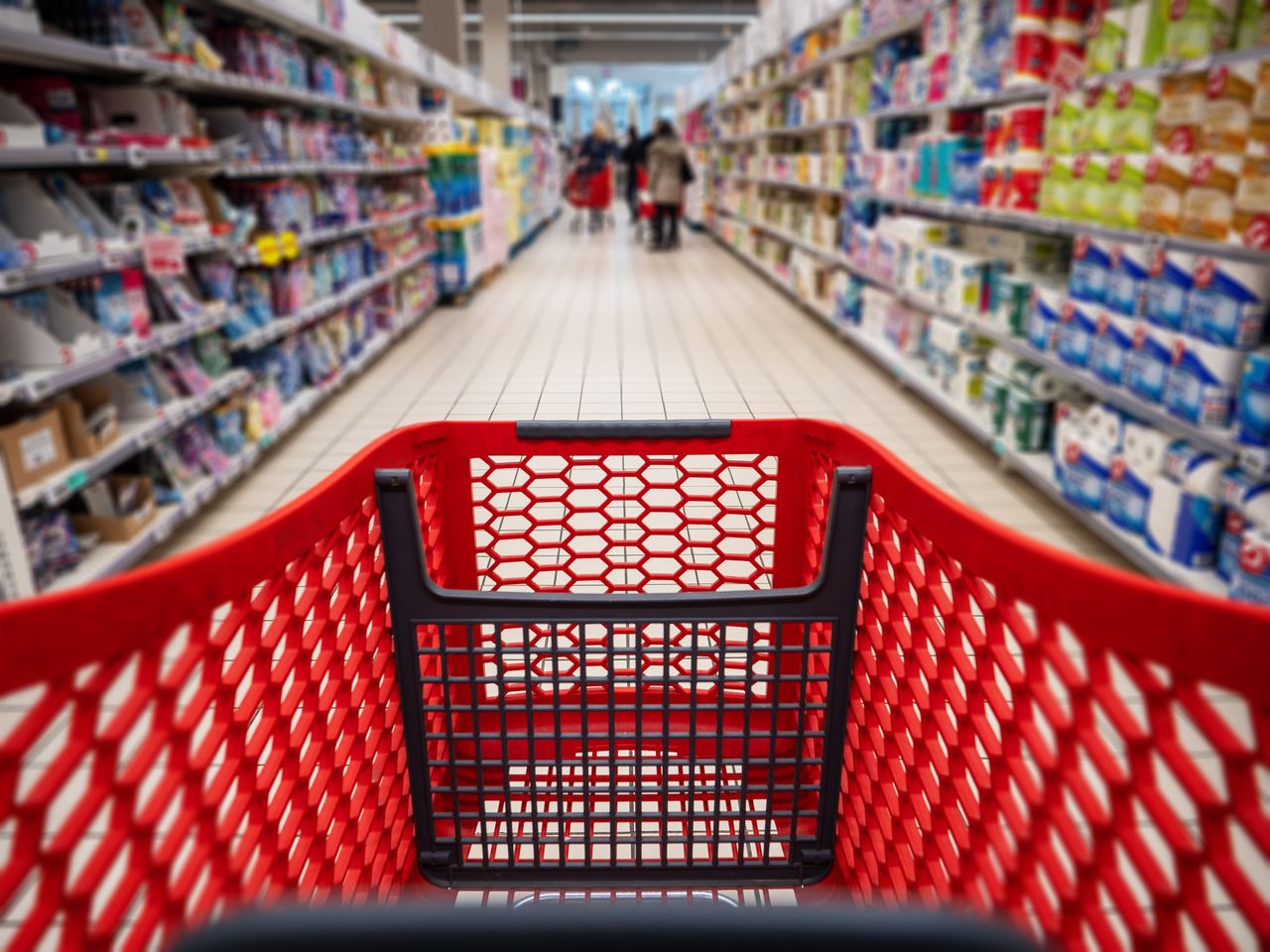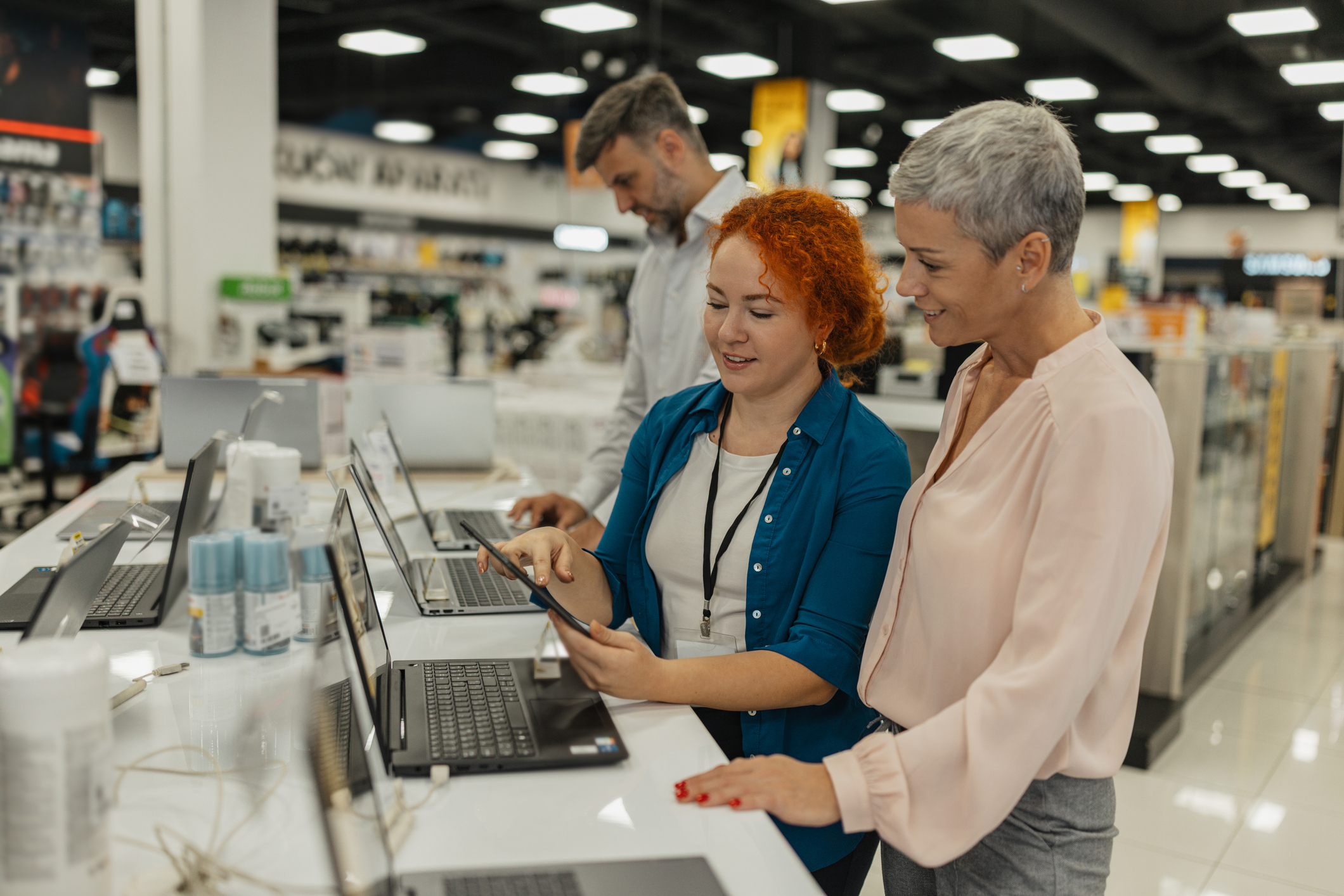
If you’ve been worried about what tariffs could do to your wallet, the ever-changing policy can make it frustratingly difficulty to figure out which items will see the biggest price hikes and when. But, the latest economic indicators, including the June CPI report, are starting to reveal early impacts of President Trump's tariff policy on the national economy.
As a quick refresher of where that frequently-shifting policy currently stands: Tariffs on all countries except for China have been paused until August 1. The President recently announced a new 30% tariff on the European Union and Mexico, also slated to kick in on August 1. The pause has allowed many businesses to stock up on extra pre-tariff inventory. That's good news for now, but eventually, that inventory will run out.
So, should you rush to buy everything on your shopping list before prices potentially spike again after the pause? Maybe, maybe not. We’ll break down what the looming end of the pause means for consumers and how to make smart shopping decisions while the tariff reduction is in effect.
Temporary Tariff Relief Is Expiring: What It Means for Shoppers
On May 12, the United States and China reached a significant agreement to reduce tariffs for a 90-day period following negotiations in Geneva. U.S. tariffs on Chinese goods decreased from 145% to 30%, while China's tariffs on U.S. imports will drop from 125% to 10%.
This short-term relief aimed to alleviate economic tensions and has already led to positive reactions in global markets, with major indices experiencing notable gains.
However, with the agreement set to expire on August 1, it remains uncertain whether the reductions will become permanent or revert back to higher tariffs. With new tariffs announced on the European Union and Mexico, consumers should brace for potential changes once the pause ends.
What you need to know about the 2025 tariffs
Tariffs, taxes levied on imported goods, have been a significant factor influencing consumer prices and global trade dynamics in 2025. Here's the current landscape:
Universal 10% Tariff: On April 5, President Trump implemented a baseline 10% tariff on all imports into the United States, invoking the International Emergency Economic Powers Act (IEEPA) to address trade imbalances.
Higher Reciprocal Tariffs: Effective April 9, the administration introduced elevated tariffs on imports from approximately 60 countries, with rates ranging from 11% to 50%, targeting nations with significant trade barriers against U.S. products. Imports from China were subjected to cumulative tariffs reaching up to 145%, combining existing measures and new reciprocal tariffs.
90-Day Tariff Reduction Agreement with China: On May 12, the U.S. and China agreed to a 90-day reduction in tariffs following negotiations in Geneva. Under this agreement, U.S. tariffs on Chinese goods decreased from 145% to 30%.
Tariffs will increase on countries that don't reach a trade agreement by August 1: For countries that don't reach a trade agreement with the United States by the end of the pause (August 1), tariffs will revert to the higher levels established on April 2.
While tariffs can cause imported product prices to rise, they can also impact the cost of domestically manufactured items because the United States often buys raw materials from other nations.
For instance, about one-fourth of the steel used in American production gets imported. Additional taxes levied on the material could make your next domestically produced appliance, automobile or cutlery set more expensive.
It’s impossible to know exactly how the taxes on imported products and raw materials will impact your finances. However, experts can venture an educated guess.
According to the Yale Budget Lab, price hikes due to tariffs are projected to cost the average household $3,800 annually. That’s not chump change, considering the country’s median annual household income is roughly $75,000.
Products you may want to buy before tariffs drive up prices further

In an effort to save money, many consumers plan to purchase foreign goods before the tariff pause expires. Some of the products that may get significantly more expensive later this year include, but aren’t limited to:
- Cars (and automotive-related products, such as tires)
- Tech items (i.e., gaming systems, televisions and computer accessories)
- Appliances (i.e., washers, dryers and refrigerators)
- Home goods (i.e., vacuums, mattresses and furniture)
- Home linens (i.e., curtains, rugs and bedding)
- Tools and hardware (i.e., drills, saws and building supplies)
- Clothing (particularly jeans and name-brand sneakers)
- Specialty food (i.e., coffee, spices, oils and chocolate)
- Toys
- Sporting goods
Note: Cell phones and computers have been made exempt from higher tariffs. However, the parts used to make them aren't exempt, so prices here are still rising, albeit at a slower pace.
What to avoid stocking up on
While you may be tempted to visit your favorite retailers or shop online, you shouldn’t buy anything just to beat the tariffs. If you weren’t already planning to purchase an item, you should probably keep your money in the bank.
Impulse or panic buying can cause you to spend over your budget or take on debt. Plus, if enough shoppers rush to clear store shelves, we could see product shortages, which could, in turn, cause prices to inflate.
We saw this happen when some consumers purchased more toilet paper than they could possibly use during the pandemic.
In addition, the tariff landscape changes nearly every day. Stockpiling foreign goods now may seem like a good idea. However, if the right trade deal gets negotiated tomorrow, you could be stuck with items you really don’t need, with that cash better spent elsewhere.
- Big-ticket items you don't need to buy this year. If you weren't already planning to buy a new car, fridge or smartphone in the next year or so, don't let panic push you into making such a major expense when you don't really need it. It may make more financial sense to hang onto your current a year or two longer than planned.
- Perishable foods. With the threat of new tariffs on Mexico, you may be tempted to stock up on avocados and other produce primarily imported from our southern neighbor. But be careful with how much you load up on. If you do want to buy more than you can eat before the expiration date, make sure you have a plan for preserving the extra, either by canning, freezing or meal-prepping.
- More of anything than you can store properly. Stocking up on non-perishable foods, home goods and other essentials ahead of possible price increases can be great on your wallet, but only if you can store it properly. That's especially true for pantry staples and cleaning supplies, which can expire sooner if not stored in a cool, dry place.
Strategies to save money after tariffs go up
Tariffs could put a strain on the family budget. Fortunately, there are things you can do to stretch your dollars even if the higher rates take effect in August, including:
- Buying domestically produced goods
- Repairing instead of replacing big-ticket items, such as cars or appliances
- Comparing prices across several retailers
- Purchasing gently used clothing, electronics and furniture
- Choosing store-brand goods
- Using coupons (physical or digital)
- Downloading money-saving or budgeting apps, such as Capital One Shopping to find deals, or Fetch to earn rewards
- Signing up for store loyalty programs
You could also shop with a rewards credit card to earn points or cash back. Some cards feature a high reward rate when you use them in certain places, like the supermarket or office supply store. Others offer a steady return for all purchases.
You must pay your bill in full each month to make this strategy worth it. Otherwise, interest charges will wipe out the value of your rewards.
Remember: In times of economic uncertainty, you should double down on personal finance basics. If you stick to your budget, reduce non-essential spending, beef up your emergency fund, pay down debt and keep investing (if possible), you’ll likely come out of this situation alright (and potentially ahead).







